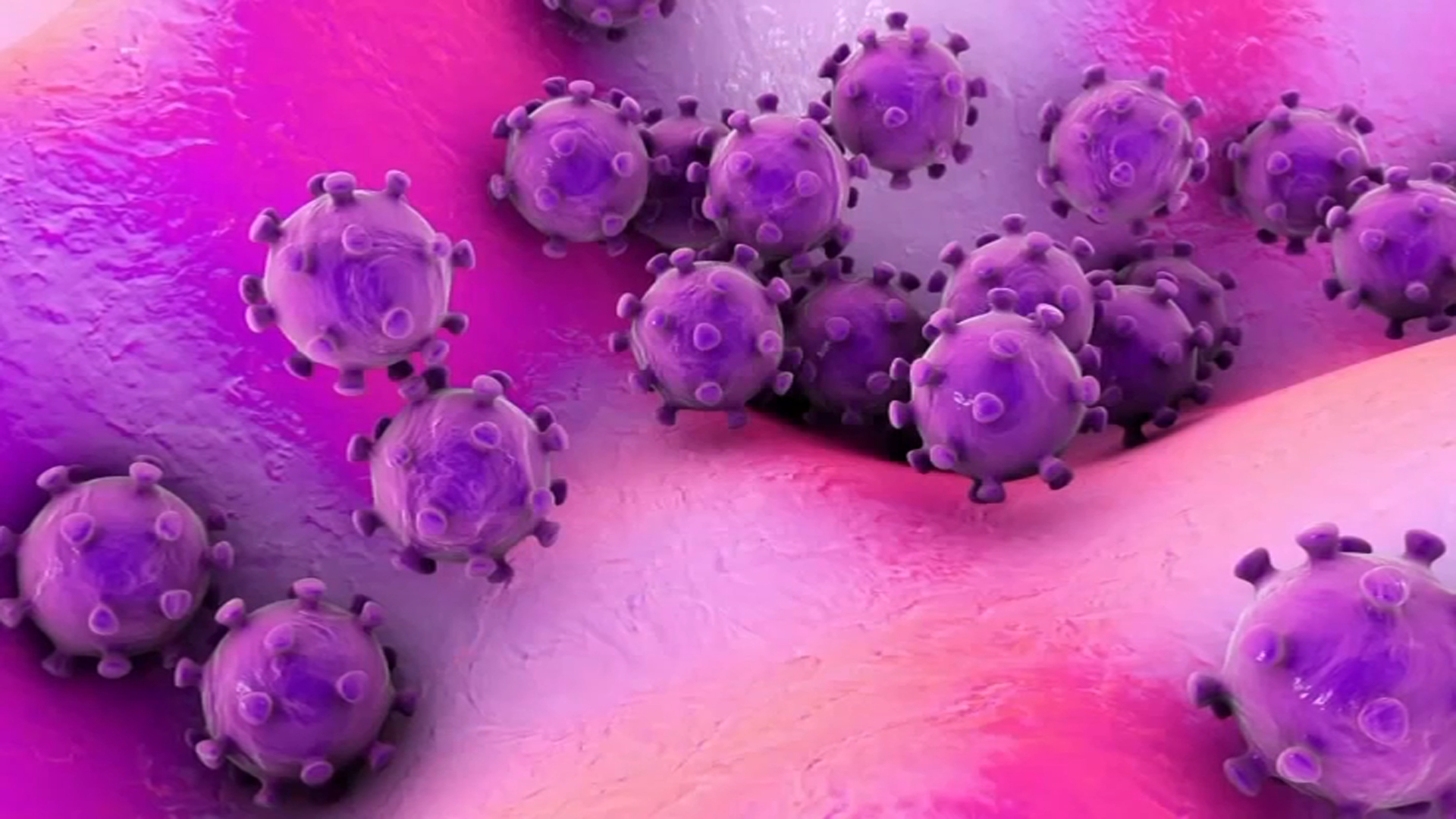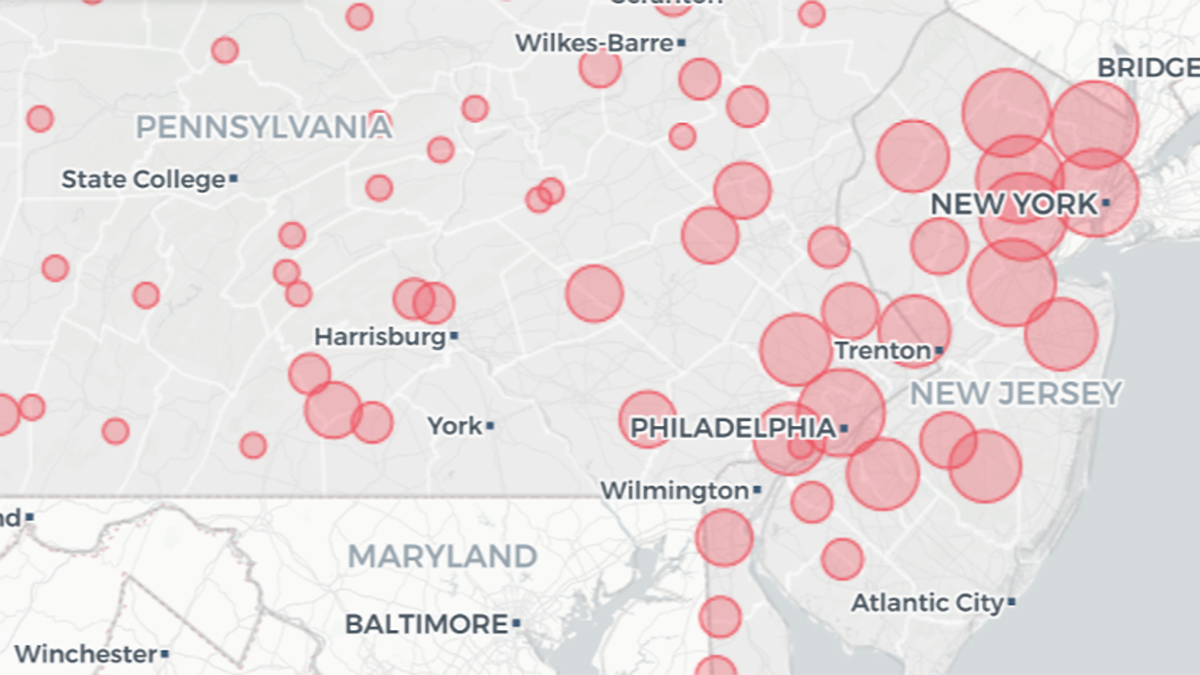What to Know
- Four more cases of the new coronavirus were reported in New Jersey Tuesday, including two in Burlington County.
- A man from Bergen County who died Tuesday is the first person in the state to die after testing positive for the new coronavirus.
- Gov. Phil Murphy has declared a state of emergency in New Jersey.
Four additional cases of the new coronavirus were reported in New Jersey Tuesday, including two in Burlington County in the Philadelphia suburbs.
The Burlington County residents are a 62-year-old man and his 60-year-old wife with a history of travel to Italy. They have been isolated at their home with a mild illness since March 4. Officials said the man also became ill on March 4 and saw a doctor that same day.
The New Jersey Health Department was notified of test results for the couple and those results are awaiting confirmation from the Centers for Disease Control.
Officials also announced a man in Bergen County who was among the newly diagnosed died in a Hackensack hospital Tuesday.
The fourth case was also in Bergen County, in North Jersey. The new cases bring the state's total number of positive tests for coronavirus to 15.
In the Philadelphia area, one case had previously been reported in Camden County. Including the new Burlington cases, there are three cases in the New Jersey counties closest to Philadelphia.
The man who died in Bergen County was 69 and had a history of health problems, including diabetes, high blood pressure and emphysema. He had not traveled out of the country, but he did go back and forth from New York, state Department of Health Commissioner Judith Persichilli said in a Tuesday press conference.
New York City has seen an explosion of coronavirus cases in recent days.
After falling ill with a fever and a cough, the man saw his primary care physician, who treated him with Tamiflu and antibiotics. But his condition didn't improve, and he was hospitalized.
He was tested for the new coronavirus on Saturday, the day after he was hospitalized, and the hospital took the necessary precautions. After two cardiac arrests, the man died Tuesday morning.
More on Coronavirus in Our Area
Lt. Governor Sheila Oliver said Tuesday that state leaders expected the virus to spread and was prepared to help residents.
“We have been focused on the inevitability that coronavirus cases would be reported in our state since the Governor convened the coronavirus task force on February third," Oliver said. “We have put sound protocols in place across all levels of government and through our partnerships with both our health care systems and our federal partners.
"We have been in front of this throughout the weeks of preparations and, as the governor said yesterday, the emergency declaration means we will stay in front of it.”
She said New Jersey residents were key to the emergency response.
“Our residents play a big role in our response and mitigation efforts, and we encourage them to continue doing their part," Oliver said. "We are going to get through this together in New Jersey.”
Meanwhile, New Jersey Gov. Phil Murphy said Tuesday the state will waive fees for COVID-19 testing for more than 2 million residents on certain health plans.
The waivers apply to residents with health insurance through their jobs with the state and public schools, as well as to those using the state's social safety net programs.
Murphy also urged the state's other health carriers covering people who get insurance through their jobs to follow suit. The state's biggest insurer, Horizon Blue Cross Blue Shield, has already said it would waive costs for medically necessary coronavirus tests.
Just over half of the state's residents have insurance through their employers, according to Jerrel Harvey, a spokesman for the governor.
Murphy declared a state of emergency for New Jersey on Monday.
The state of emergency and public health emergency was declared across all 21 counties in New Jersey, allowing state agencies and departments to use state resources to help affected communities respond to and recover from new coronavirus cases.
“The State of New Jersey is committed to deploying every available resource, across all levels of government, to help respond to the spread of COVID-19 and keep our residents informed,” Governor Murphy said. “My Administration will continue to work closely with our federal partners to ensure that local health agencies on the front lines of the state’s response are equipped with the resources needed to further prepare our health care system for a broader spread of COVID-19.”
“That fact that we're continuing to see additional cases is concerning, but it's not unexpected,'' Health Commissioner Persichilli said.
Officials said Monday they would begin to hold daily briefings on the virus as it begins to affect more residents.
Princeton University said it was restricting large gatherings and urging students to take classes online.
COVID-19 is spread mainly from person-to-person when droplets from an infected person who coughs or sneezes land on someone else’s nose or mouth or enter their lungs, according to the CDC. It can also be spread when someone touches their own mouth, nose and possibly eyes after coming into contact with a surface that has the virus on it.
To prevent the spread of the virus, the CDC recommends frequently washing hands with soap and water for at least 20 seconds – or using an alcohol-based hand sanitizer with at least 60% alcohol – wiping down dirty surfaces and using the inside of the elbow to cover a cough or sneeze.
For most people, the new coronavirus causes only mild or moderate symptoms, such as fever and cough. For some, especially older adults and people with existing health problems, it can cause more severe illness, including pneumonia.



